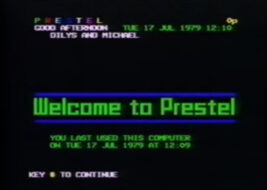Across a Swinton sandwich shop table-top Charlie Winstanley‘s words are as plain as Rich Tea biscuits. “I’m a Marxist,” he says. “I believe society’s problems are class problems. Feminist and race politics are important but they’re also distinct.” I’m on a lunch date with the Labour comms man after the big cost-of-living rally at the cathedral a couple of weeks ago – before the late Queen bit the shortbread herself, of course. The packed protest saw speeches from Andy Burnham and – rousingly – RMT deputy Eddie Dempsey, who seems to be the man of the moment. “Have you seen the news today?” Charlie asks.
I have. It’s being reported that the New Cross firebrand – with his Brexity views and sink estate vowels and his belief that “whatever else you think of them…Tommy Robinson’s

supporters are right to hate the liberal left” has begun legal action against the Independent journalist Femi Owulowe over intimations of racism. As a man with the inside track when it comes to Salford politics Charlie insists he speaks today on behalf of the Enough Is Enough campaign only. But it’s Dempsey who seems front and centre in his thoughts. “If you go on the Twitter thread,” he says, “it’s very interesting because about eighty percent of people seem to support Eddie.”
“The old ideas about left and right are breaking down.” A severe bout of Eighties nostalgia is on the way. “Faced with demands for wage rises amid a cost-of-living crisis,” records Tribune, “Britain’s economic establishment has set out to protect the wealthy by starting a recession.” The campaign demands real pay rises, slashed energy bills, decent housing, an end to food poverty and proper taxation for the wealthy. “We’re in the process of forming branches,” he tells me. They want to politicise the food banks and other support services. “This recession on the way is a crisis, potentially, of historically unheard-of proportions. A tidal wave is coming, absolutely.”
The future, once
In the dreamworks of Rawtenstall’s Unit 4 cinema the movie War Games serves up an electrifying vision of the future, as teenager Matthew Broderick hacks into the Pentagon from his home computer and nearly starts a nuclear war. It’s 1983, I’m eleven years old, and I yearn that my ZX Spectrum could be upgraded to that kind of capacity. So when I learn you can buy a basic modem in WH Smith I nag my parents to get me one.

Soon I’m online on the Prestel network – it’s like a bargain bin version of the internet, only it looks like Teletext. There are news pages and chat rooms and you can send private messages, though to be honest at this stage Teletext still packs a bit more of a punch. There’s more fun to be had playing games, with Ultimate – makers of Jetpac and Sabre Wulf – ahead of the field in terms of graphics, but after being on some forum I end up swapping intimate messages with a person I think is another boy and don’t realise until much later is an adult.
He asks my address and sends pornography in the post. Then there’s a real-life invitation “to play chess”. Within a year I will be dropping the needle on Reel Around The Fountain in marathon binges without inkling of personal investment in the song, but right now, with that endless decade beached at its mid-point, I hear my father’s voice railing at Mrs Thatcher from the living room below me, and my heart beats madly for the futures my new relationship promises – I mean, imagine being sexually groomed on Ceefax.
Déjà Vurt
To the boy who will settle to his studies, books are a fire escape in the sky. And with heritage engulfing the city in recent times there’s now a notion of Mancunian literature – a body of fiction and poetry set in our beloved home place. Come to think of it, not a week passes by without The Mill unearthing some lost genius poet, the City of Literature tweeting its lovely selfies, the Gaskell House trying to keep up with the Brontes, and the ghost of Anthony Burgess reminding us in some small way of the reputational dividend in being a dead writer with a few quid in the bank.
Whittlers of textbooks and literary studies are taking an interest too – fab recently were Michel Butor’s selected essays for Vanguard Editions (the Frenchman’s avant-garde ‘50s opus Passing Time, set in a labyrinthine alternative Manchester, is the work of a man who believed fiction can re-wire you) and David Brauner’s monograph for MUP on Howard Jacobson (who with Kalooki Nights may have set one of the great Jewish novels here). This month it’s the turn of Jeff Noon’s batshit chemical fiction trip Vurt to get the red pen

treatment. Set in a near Manc future where dissolute gangs jack into a trippy virtual reality by sucking on psychotropic feathers, ‘Stash Rider’ Scribble strives to rescue his sister from the darkest reaches of the bonkersphere. “What’s so special about Vurt,” author Andrew Wenaus tells me over the phone from the University of Western Ontario, “is the way it has passed from person to person, like a secret amulet, over the years. It changes your consciousness. It’s mind-altering.”
Published amid the post-acid house, pre-Trainspotting comedown of the early ‘90s the novel is a portal-quest so beloved in the speculative fiction world it has its own board game, stage play and complementary drink waiting for it behind posterity’s velvet rope. It’s of course by no means la la that a Canadian academic should be probing its Mancunian dreamscapes, relations to genre and Orphic myth, remixing of meaning and habitual breaking of dimensional walls to effect the ‘feedback loop’ which characterises Noon’s fiction. “There’s something about the past thirty years that feels like a skipping record, an infinitely-looping GIF animation,” Wenaus notes of the world we live in. Into the maw of that world Vurt pours a psychoactive brew steeped in concentrate of Crescents-era Hulme. “Vurt tasks us to think with literature,” he writes. To think like the novel thinks.
Vurt: A Critical Companion by Andrew Wenaus is published by Palgrave.
dannymoran.co.uk








